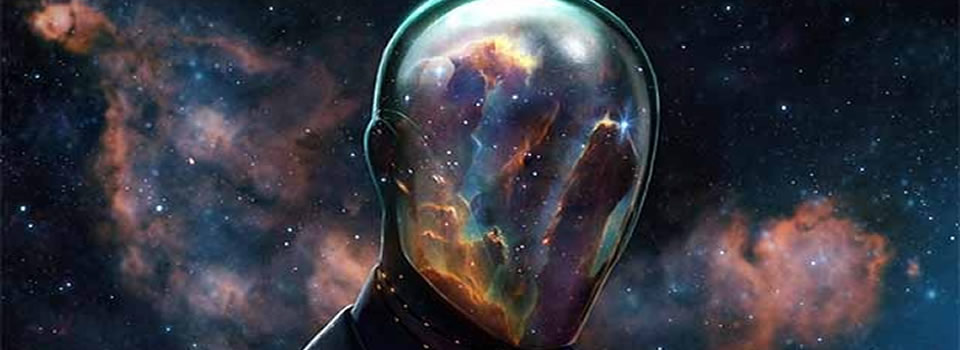Creating our Universe
 Our world is so insignificantly small it hardly registers in the universe; in fact it’s almost completely impossible to comprehend just how irrelevant Earth appears when viewed in comparison to the enormousness of just our galaxy alone.
Our world is so insignificantly small it hardly registers in the universe; in fact it’s almost completely impossible to comprehend just how irrelevant Earth appears when viewed in comparison to the enormousness of just our galaxy alone.
The Milky Way is 100,000 light years across and since, as you surely know, light travels at 186,000 miles a second, you can then calculate its utter immensity. Yet this galaxy is only but one among billions of others – hundreds of billions of others – strewn out among the universe like rough and scattered diamonds that glitter in a background of unending darkness.
Looking up into the night sky we can only see a small segment of the Milky Way: some planets in our solar system - Venus, Mars, Jupiter perhaps - and then the stars. The nearest one beyond our sun is already three hundred and ninety billion miles away and that, in terms of space, is a mere nothing – a neighbor in a vast ocean of more than a hundred billion other stars that inhabit our galaxy alone. The entire universe is so incomprehensibly vast that, according to Dr. Simon Driver, a noted Australian astrophysicist, it contains ten times more stars than grains of sand in all the deserts and on all of the beaches around the world! Our brains are basically incapable of comprehending such a statistic.
Our bodies themselves are actually composed of the carbon atoms from some of the stars that exploded billions of years ago and we share those atoms; they are recycled. Within your body now you have millions of atoms that once composed the body of Confucius, Caesar, Copernicus or even Christ. Nothing is lost at all. But however much a part we may be, however closely connected we are to this universe of ours, we are such an infinitesimally small and insignificant part, that in the eternity of space, our fleeting life spans would seem to register as nothing more important than an inconsequential whisper – barely noticeable at all. But astonishingly, our influence is unexpectedly profound.
Niels Bohr, an architect of quantum theory and one of the most respected names in physics, stated that: “There are fundamental limitations met with in atomic physics of the objective existence of phenomena independent of their means of observation.” In what became known as the Copenhagen Interpretation (named after the group of scientists who worked with Bohr in this Danish city), it appears that despite all our many limitations, that reality is very much contingent upon us as “observers” of that reality. Eugene Wigner, another extremely important physicist, specifically cites mind as the means by which reality is “created” and implies that prior to the arrival of intelligent life, the universe didn’t meaningfully or actually exist at all.
Referring to the apparent influence human consciousness has concerning our material reality, Paul Davies - the very well-respected British theoretical physicist and astrophysicist - states that: “Taken to its extreme, this idea implies that the universe only achieves a concrete existence as a result of this perception – it is created by its own inhabitants.” One question immediately leaps to mind though: if, as most scientists agree, the universe is purely the result of a self-actuating event that randomly occurred, how then are we to interpret the assertion that humankind then has such a profound influence over its actual material existence? If consciousness is required to “actualize” matter then it is completely and absolutely logical to then assume that it was also somehow influential in the actual transformative or “creative” moment of the universe.
But now we see a problem. If our consciousness is so influential in creating our reality, perhaps we should ask ourselves how that reality is. And if we look around us and see so much pain and suffering in the world - our constant wars and manipulations - then maybe we should therefore be examining the state of that consciousness which is said to be so determinate.